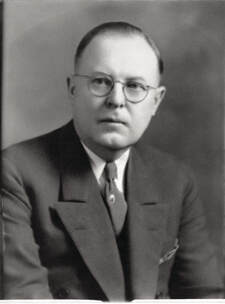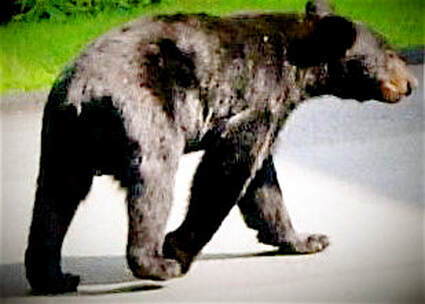 (Photo courtesy of The Claremore Daily Progress)
**Though this series has been primarily about regular, “constitutionally-elected” chiefs, the author asserts that J.B. Milam deserves recognition due to his record of human service. This is the eleventh in a series of profiles offering brief information on every constitutionally-elected Principal Chief of the Cherokee Nation since 1828. The first Presidentially-appointed Cherokee Nation Principal Chief since early tribal dissolution, Bartley Milam was designated Principal Chief by President Franklin D. Roosevelt in 1941. Milam was born 10 March 1884 in Texas to William Milam and Sarah Couch. The Civil War had taken its toll on the Milam family and they retreated to Texas in 1863 to escape the war’s disastrous effects. A few years after his birth, his family returned to Indian Territory (I.T.) and settled near today’s Chelsea, Oklahoma. Milam, like so many young Cherokee men of his day in I.T., attended the Cherokee Male Seminary. He later studied at the Metropolitan Business College in Dallas, Texas. He also held jobs in hardware, banking, and oil and gas. He and his brother-in-law founded Phillips and Milam Oil Company. He married Elizabeth McSpadden in 1904. Milam became the president of the Cherokee Nation’s first bank, the Bank of Chelsea, in 1915. Milam wasn’t just an innovator; he was a forward-thinking leader with a broad perspective. Having acquired more than a reasonable amount of money, Milam funded Emmet Starr’s work, the most important Cherokee genealogical research at the time. On 8 August 1838, a group of Cherokees got together in I.T. to create a National Council in objection to Presidential appointments for Principal Chief. They elected Milam, and on 16 April 1941, President Roosevelt confirmed his appointment as chief. This was later reconfirmed by President Truman. Robert J. Conley references biographer Howard Meredith regarding Milam’s concern for the confusion about ownership of the Grand River’s riverbed. Milam was convinced that it belonged to the Cherokees and argued for the rights to it. Milam did much for Cherokee language advancement and helped create the Cherokee National Historical Society, for which this author is extremely grateful. Milam was also a founding member of the National Congress of American Indians. By 1946, Milam had begun acquiring land to be installed in trust for the Cherokees. Later, in August of 1948, Milam was expelled from office after serious disagreements with the Cherokee National Assembly at a convention that was supposed to provide unity but instead turned divisive. Despite this, Milam did much for the Cherokee Nation and its history during his life of service. Bartley Milam’s papers can be found in the McFarlin Library at the University of Tulsa, Tulsa, Oklahoma. Milam died on 8 May 1949 and is buried in Chelsea Cemetery, Chelsea, Oklahoma. SOURCES: Conley, Robert J. The Cherokee Nation: A History. Albuquerque: University of New Mexico Press, 2005. “J.B. Milam,” Wikipedia. Accessed 14 March 2020.
2 Comments
Richard Oliver
6/21/2021 02:31:18 pm
Very interesting reading. You are a well accomplished author it appears. I too belong to the family tree of Thomas Cordery and Susannah Soniovie Sonicooie. My 4th great grandmother was sister to Sarah Cordery Rogers. She was Nancy or "Nannie" Cordery Collins. I fall under the Cordery/Collins/Harris/Oliver lineage.
Reply
Bryan Jackson
6/21/2021 03:15:53 pm
Thanks, Richard! I appreciate the kind words. If you get this, please contact me at [email protected]. I would love to Zoom/chat with you about our ancestors.
Reply
Leave a Reply. |
Yona Ambles"YOH-nuh" (yonv) means "bear" in Cherokee. Thanks for visiting! Archives
January 2024
|

 RSS Feed
RSS Feed
